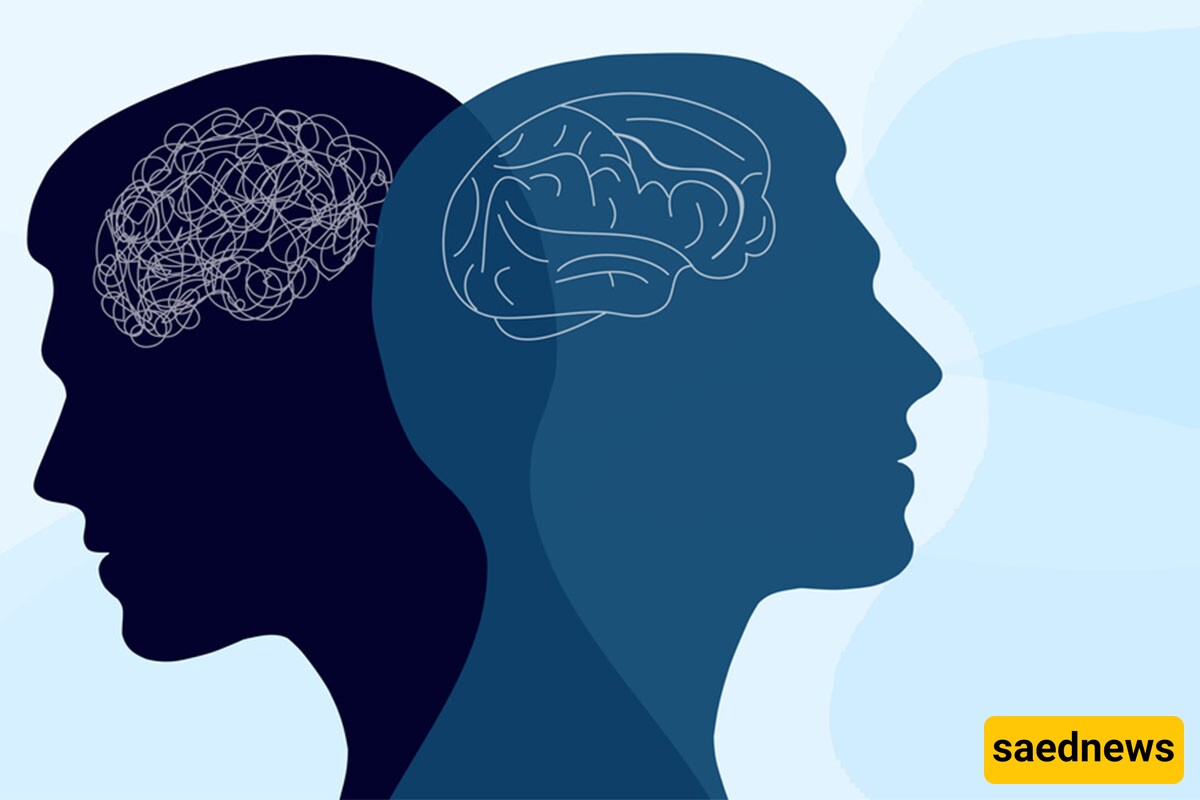SAEDNEWS: In a fast-paced world, mental well-being, and self-improvement are essential. Psychology provides tools for building resilience, managing stress, and enhancing self-awareness. This guide delves into the science of mental health and offers practical strategies to achieve a balanced, fulfilling life.

According to SAEDNEWS, Mental and physical health are more closely connected than many realize. Numerous studies show that stress and negative emotions can impact physical health, leading to issues like headaches, digestive problems, insomnia, and even lowered immune function. To improve overall health, taking steps to support both mental and physical well-being is essential.
Psychologists emphasize techniques like mindfulness and breathing exercises, which help regulate our body’s response to stress. By practicing mindfulness, we can reduce levels of the stress hormone cortisol, thereby strengthening our immune system and improving sleep quality. Physical health and mental resilience go hand in hand, supporting each other.

Self-reflection is a powerful tool for personal growth, allowing us to gain insight into our behaviors, emotions, and motivations. Reflecting on our daily experiences and decisions helps us identify patterns that may be holding us back and explore ways to shift our mindset and approach.
Many find that journaling is an effective way to deepen self-awareness. By writing about one’s thoughts, actions, and feelings, it’s possible to notice recurring themes that reveal personal strengths and areas for improvement. Self-reflection creates a space for honesty, helping us to better understand our triggers and reactions. Over time, this practice empowers us to set clearer goals and make more mindful choices, leading to a more intentional and fulfilling life.

Resilience—the capacity to navigate and bounce back from setbacks—is a skill that can be learned and developed with practice. Psychology offers insights into how we can strengthen our resilience through small, consistent changes in thinking and behavior. Learning to manage emotions, develop optimism, and build a network of supportive relationships can all make a significant difference in how we handle challenges.
One technique for building resilience is cognitive restructuring, a method that helps shift negative or irrational thoughts into more balanced perspectives. For example, when facing a difficult situation, resilient people tend to view it as a temporary challenge rather than a permanent setback. Social support is also crucial; connections with friends and family provide comfort, reduce stress, and remind us that we’re not alone. Resilience is about adopting a growth-oriented mindset, so we can move forward with confidence, no matter what life throws our way.

Positive psychology emphasizes the importance of cultivating optimism and self-belief. Research has shown that people with a positive outlook experience greater life satisfaction, less stress, and stronger social connections. Developing this mindset doesn’t mean ignoring challenges but rather approaching them with a constructive attitude.
Techniques such as practicing gratitude, setting achievable goals, and visualizing success are proven to increase positivity. Studies have found that writing down a few things you’re grateful for each day can lead to increased happiness and resilience. Likewise, visualizing success in personal and professional goals can reinforce confidence, making it easier to persevere through difficulties. Over time, these small changes in thinking lead to a stronger sense of purpose and greater overall satisfaction.

A balanced lifestyle with regular routines is a key component of mental wellness. Psychology shows that healthy habits—such as regular exercise, balanced nutrition, sufficient sleep, and mental downtime—create a strong foundation for both mental and physical well-being. These habits reduce stress, improve mood, and support better cognitive function, all of which contribute to lasting mental health.
Sleep, though often underestimated, has a profound effect on mental well-being. Insufficient sleep is linked to anxiety, mood swings, and reduced resilience. Experts recommend a consistent bedtime routine and limiting screen time to improve sleep quality. Exercise, too, is critical; it releases endorphins, which improve mood and energy levels naturally. Developing and maintaining these habits may take time, but they ultimately form the cornerstone of a healthier, more resilient life.
In today’s fast-paced world, prioritizing mental health and self-improvement is essential for achieving a fulfilling life. Psychology offers a wealth of knowledge and practical methods to enhance mental well-being, from cultivating resilience and positive thinking to engaging in regular self-reflection. Understanding the mind-body connection, setting healthy routines, and learning to adapt positively to life’s challenges can help us become more centered, confident, and capable. Embracing these strategies empowers us to live a healthier, more balanced life grounded in resilience and self-awareness.

